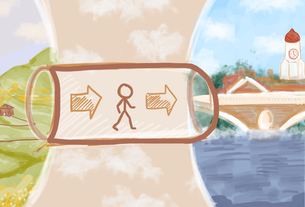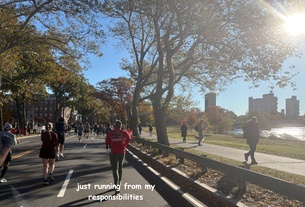Admissions Question of the Day
Should your main essay be the Common App essay or the college essay?
The main essay that is read by all colleges you apply to through the Common Application is your Common App essay, so be sure to make this very strong and broadly applicable. The Common App essay is typically something that talks about your personal experiences, something that has happened in the past that has influenced you, for example.
I will be visiting college campuses soon. Do I need to have on-campus interviews?
On-campus interviews are not required. In fact, there are a great deal of schools that do not offer them. Even those that do have on-campus interviews often do not have them year-round. In general, schools will contact you for alumni interviews in your area. Below is a list of some schools, broken down by whether or not they offer on-campus interviews:
How many people are accepted off the waitlist each year?
This number varies from school to school and from year to year—sometimes hundreds will be admitted, but sometimes none will. Harvard's dean of admissions, William Fitzsimmons, told The Crimson earlier this year that in recent years, Harvard has accepted between zero and 228 waitlisted students.
If I am planning on visiting a school, do I need to make reservations ahead of time?
Whether or not reservations are required varies by school—below is a breakdown of universities and their various policies regarding this topic. In general, it is important to look at the websites of universities you’d like to visit before you set foot on campus. Make sure that tours and information sessions are indeed being offered on the day that you are planning to be there—some colleges do not offer them every day of the week, and holidays might mean tours and information sessions are suspended.
What happens if I'm waitlisted?
After you have received all of your decisions, you should reflect upon the choices you have and decide a plan of action. It may be that you feel that the school(s) that waitlisted you are not worth pursuing; if that is the case, you should ask to be taken off the waitlist.
How to Choose a Teacher for a Recommendation Letter
It's always best to choose someone who really knows you, someone who has, perhaps, seen both your strengths and your weaknesses. Then, your teacher can attest to your strengths and maybe even write about times when you've overcome your weaknesses. If you choose someone who knows you on a superficial level just because you think they're considered to be the best teacher at your school, then you might not get the same in-depth recommendation letter that someone who knows you well can write.





